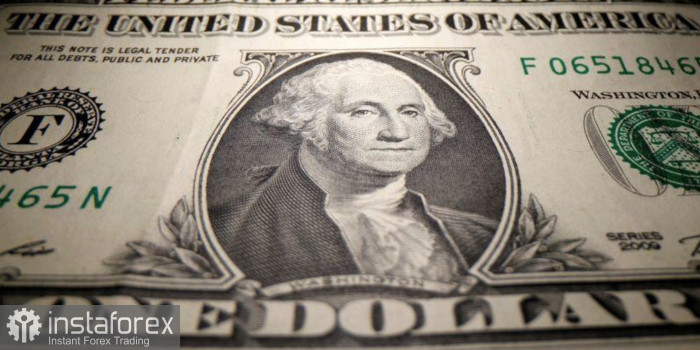A sharp plunge in US stocks and the capitalization loss of over $6.4 trillion prompted US policymakers to speak about the economy in a more alarming tone.
It is evident that the pillars that have supported the uptrend on Wall Street for a few years have been shaken. I mean a series of key assumptions priced in by investors worldwide. Many believed that the US economy was unshakable and that artificial intelligence, rapidly gaining strength, would revolutionize business globally. No one could have imagined forex interventions by Japan's regulator. Over the past few weeks, lots of events have eroded investor confidence. The US nonfarm payrolls for July revealed weak hiring. Likewise, the quarterly earnings of AI-based tech giants were disastrous. Meanwhile, the Bank of Japan raised interest rates for the second time this year.

Yesterday's speech by San Francisco Federal Reserve President Mary Daly was controversial. Daly tried to smooth the situation, stating that the labor market is softening and advised the central bank to begin lowering interest rates soon. However, Mary Daly refrained from concluding that the labor market had significantly weakened. "Policy adjustments will be necessary in the coming quarters," she said on Monday. "Now we see the labor market slowing, and it's crucial to prevent it from slowing to the point of recession."
In her viewpoint, the Federal Reserve will have to cut the key interest rate, but much will depend on incoming economic data. Mary Daly underscored that she still sees strength in the labor market, even though many companies have slowed hiring new workers. "We have a fairly robust labor market," she noted.
Her comments followed a worse-than-expected US employment report released last Friday, which fueled recession fears.
Mary Daly also pointed to the decline in mortgage rates following the employment report as evidence that the Federal Reserve is effectively fulfilling its function and that its monetary policy is working. "Markets might move too strongly in one direction or another right now, but I think the expectations of how we will balance the two goals are very clear," she said.
Two days before the publication of the official employment data, Fed policymakers kept interest rates unchanged at more than a twenty-year high, indicating that they are close to lowering borrowing costs. Fed Chairman Jerome Powell said that a rate cut might be appropriate at the central bank's meeting in September. Several economists, including those from Citigroup Inc., JPMorgan Chase & Co., and Wells Fargo & Co., now expect a half-point rate cut at the September and November meetings.
Technical picture for EUR/USD
EUR/USD buyers need to focus on grabbing the 1.0960 level. Once this level is taken, the bulls can aim to test 1.0985. From there, the door will be open to 1.1000, but hitting this target without support from major players will be quite a challenge. The furthest target will be the 1.1035 high. In case of a decline in the instrument, I expect significant actions from major buyers around 1.0935. If none are present, it would be wise to wait for the 1.0915 low to be updated or to open long positions from 1.0895.
Technical picture for GBP/USD
GBP/USD buyers need to reclaim the nearest resistance at 1.2780. Only this will allow targeting 1.2815, but it will be quite difficult to break through above. The furthest target will be the 1.2855 area. After it is hit, the bulls may plan climbing to 1.2885. In case of a decline in GBP/USD, the bears will attempt to take control of 1.2744. If they succeed, breaking this level will deal a serious blow to the bulls' positions and push GBP/USD to a low of 1.2708 with the prospect of reaching 1.2670.





















